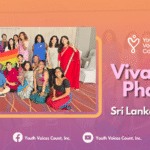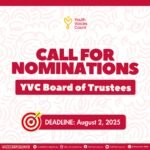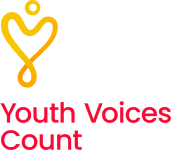Since the 2016 Political Declaration on HIV and AIDS – UN Member States, civil society, and international organizations have committed to ending AIDS by 2030. As we inch closer to 2030, the world has come to recognize the need for the meaningful engagement and leadership of communities living with, at risk of, and affected by HIV. Community-led organizations have been at the forefront of the global HIV response – connecting people, especially underserved populations, with person-centered public health services building trust, introducing innovative practices, and monitoring the implementation of policies and services.
Against this backdrop, the theme for this year’s World AIDS Day is ‘Let Communities Lead.’ In letting communities lead in the fight against HIV, it is crucial to highlight the importance of young people in leading the HIV response. Young key population-led organizations around the world have pioneered best practices, ensuring the meaningful engagement of youth in decision-making spaces, delivering treatment and services to hard-to-reach communities, and successfully advocating for increased commitments to fund HIV initiatives. Youth-led initiatives have played a crucial role in raising awareness, advocating for better policies and services, and providing innovative solutions to address the challenges of HIV.
In this regard, the Asia Pacific Inter-Agency Task Team on Young Key Populations (IATT-YKP), which consists of Youth LEAD, Youth Voices Count, UNAIDS Regional Support Team for Asia and the Pacific, UNESCO Bangkok, and UNDP Bangkok Regional Hub, are partnering with Y+ Global to adapt the World AIDS Day theme to highlight the leadership of young people and young key populations.
“On this World AIDS Day, it is important to recognise the vital role that young key populations play in our fight against HIV. They are the present leaders in the region and beyond, and it is crucial that UN agencies and other stakeholders actively support and empower them on their journey to make progress towards the 10-10-10 and other ambitious targets,” says Jawying Honey Lyster, Programme Specialist, UNDP Bangkok Regional Hub and Co-Chair of the Inter-Agency Task Team on Young Key Populations.
Barriers to youth leadership, including age-based discrimination and tokenistic inclusion, limited space for youth-led organizations, insufficient sustainable funding, and discriminatory laws and policies – especially with the escalation of anti-LGBTQI+ laws in many parts of the world – constitute challenges for young people in contributing to the global, national, and community levels of the HIV response. Yet young people, in all their diversity, continue to persevere.
The UNAIDS 2023 Global AIDS Update Report emphasizes that young people from key populations are highly vulnerable to HIV and struggle to stay healthy and safe in contexts marked by stigma, discrimination and harassment, punitive laws, and social taboos. In the Asia Pacific region, young people and their sexual partners accounted for 26 per cent of new HIV infections in 2020. In Indonesia, Philippines, and Thailand, over 45 per cent of new HIV infections were among young people. In sub-Saharan Africa, 82 per cent of new HIV infections were among young women in 2019.
“There is undeniable proof that meaningful engagement of young people in HIV responses can accelerate the ending of AIDS and ensure that no one gets left behind,” explains Leo Villar, Communications and Project Officer at Youth LEAD Asia Pacific.
Young people, when given the opportunity and space, wield enormous influence over initiatives and programs that drive change. Young people’s contribution to ending AIDS is invaluable, and it is imperative that all partners recognise and support the role that youth and youth-led networks play in the HIV response. Young people are not just beneficiaries but equal partners who should be respected and trusted as leaders. As the heartbeat of the global HIV response, young people hold the key to a future where HIV is eradicated. So as we underline the importance of letting communities lead this World AIDS Day, we also shine a spotlight on the role of young people in leading the path to ending AIDS.
“To end AIDS, we must provide young people with opportunities to lead, support them in their leadership, and empower them as leaders. Only by allowing young people to lead can we achieve this goal,” says Eddy Rudram, Communications and Advocacy Manager at Y+ Global.
Let Young People Lead!







